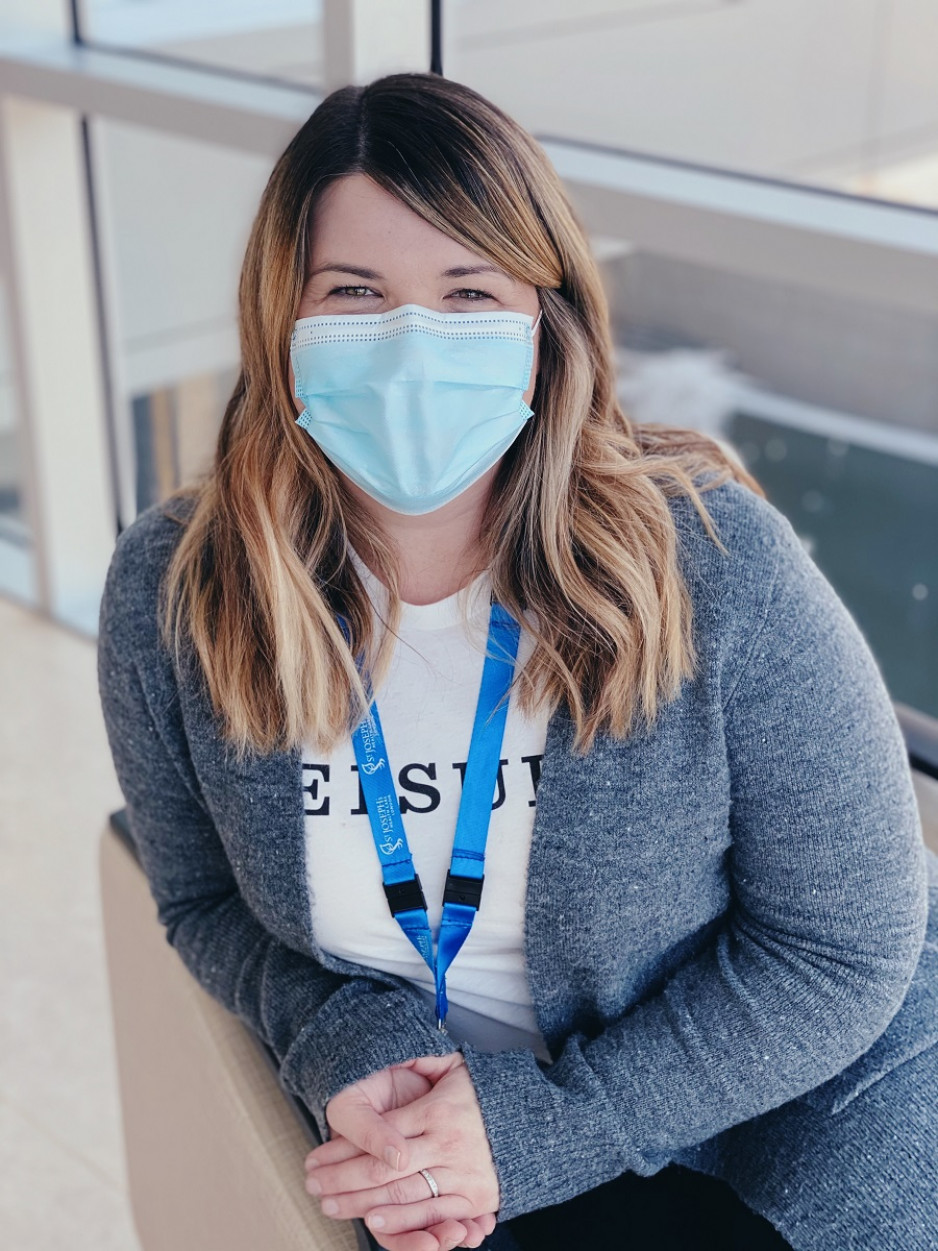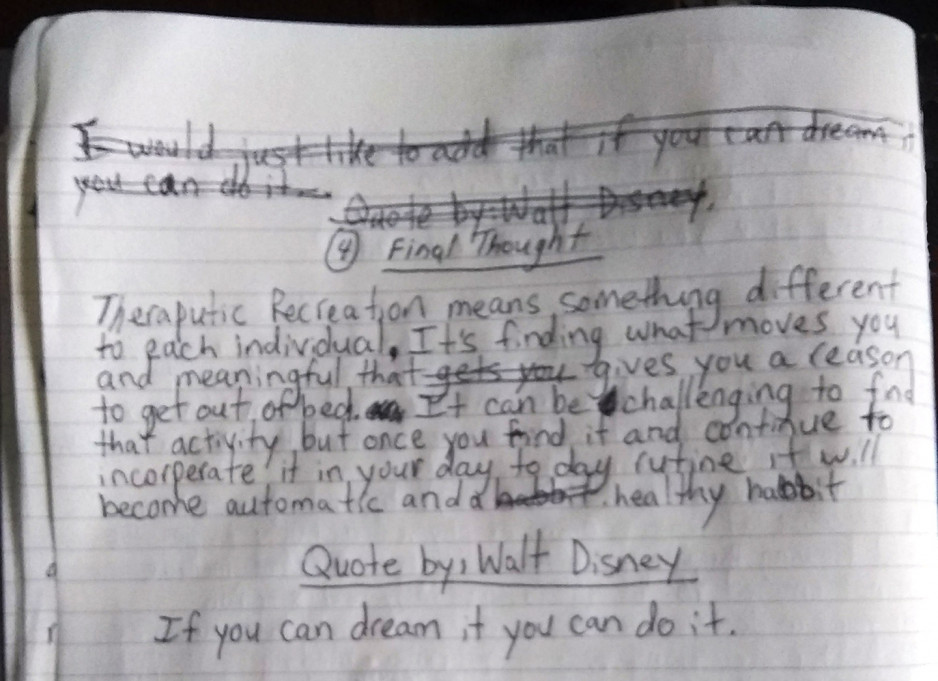Therapeutic recreation supports recovery
On the surface, therapeutic recreation can look like a lot of fun and games with activities that may include journal writing, sculpting and painting. Below the surface, however, lies a health care profession that can help restore an individual’s mental and physical well-being.
As therapeutic recreation specialist Andrea Campbell says, “the therapy and activities can lead to a much deeper experience for those involved.”
Therapeutic recreation uses leisure and recreation as a primary tool for each individual to achieve their highest level of independence and quality of life. Leisure-based treatment plans are also developed, which are based on a person’s strengths and values that are identified through an initial assessment.
Andrea works on one of St. Joseph’s seven Assertive Community Treatment (ACT) Teams, where she helps individuals living with a mental illness develop meaningful activity-based interventions. She works in collaboration with a team of social workers, nurses, psychiatrists and other health care providers to build the right program for each individual.
"I enjoy being able to help people develop and achieve their goals through meaningful action and engagement,” says Andrea.
ACT Teams provide specialized intensive community-based services to adults living with severe, complex and persistent mental illness between the ages of 18 and 65. ACT clinicians are specially trained to support people in regaining a healthy, meaningful and fulfilling place in their community.
Matt, who is receiving care through St. Joseph’s Elgin ACT Team, has been working with Andrea for the past year. While he participates in regular walks, volunteering and yoga as part of his therapeutic programming, Matt also engages in journal writing and creative projects that include vision boards, art journals, gratitude letters, and meditation exercises.
“It gives me a reason to get out of bed,” says Matt. “The therapy keeps my mind from wandering and gives me a sense of accomplishment and purpose that makes me feel happier and more productive.”
Andrea has also witnessed the strides Matt has made in his recovery process. “After a year of therapy with him, Matt now offers creative ways to work through obstacles and challenges in his life.” He routinely reviews his coping plan and uses new techniques to creatively solve his problems more independently,” says Andrea.
Recreational therapy has also been proven to help people develop the skills they need to better manage anxiety, depression and anger. With the restrictions and lockdowns that have been in place due to the ongoing pandemic, Andrea adds that while these safety measures are important to reduce the spread of the virus, they also can lead to increased stress and anxiety for people who may feel more isolated and alone as a result.
“The pandemic has been challenging for everyone. Part of my role is to help people find creative ways to redirect their thoughts, regulate their emotions and build resiliency to challenges through actions,” says Andrea, who has largely worked with Matt virtually since the pandemic. “Meditation, self-care, journaling, and nature walks all have a scientific basis to support your happiness. I am grateful to be part of a health care profession that encourages people to embrace life.”

